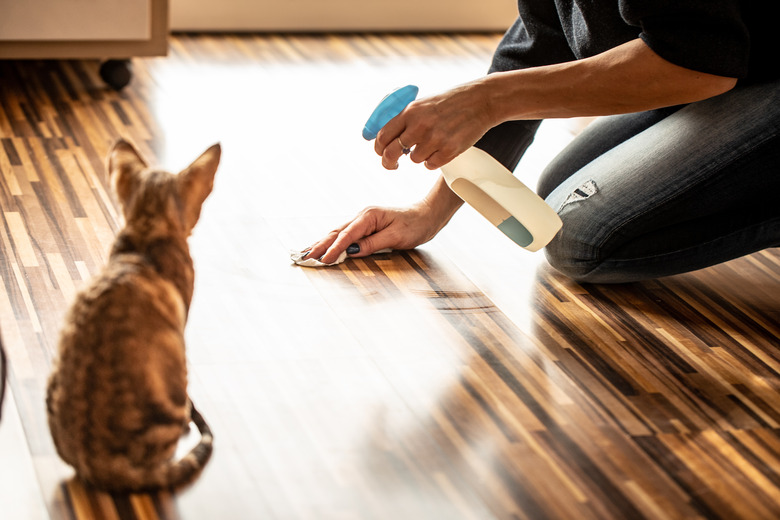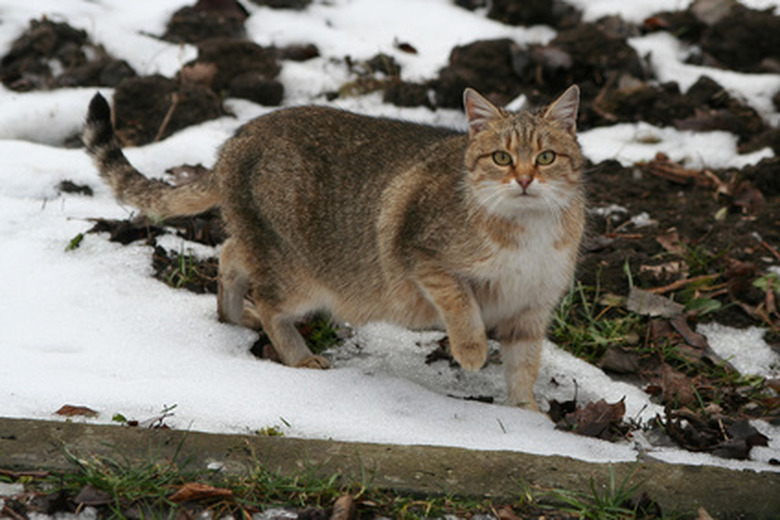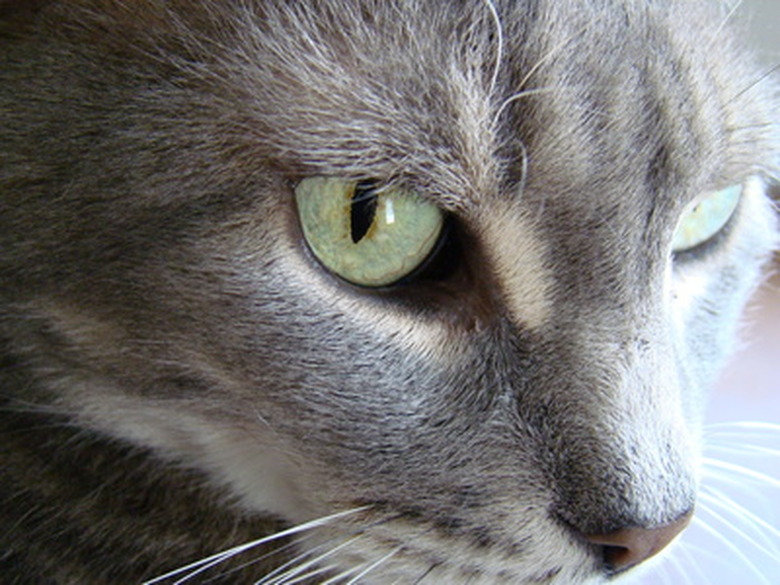Why A Cat Is Urinating On People & Things
It is a common complaint that some cats start to urinate on people and things in their home; most times this starts quite suddenly and well into the adulthood of the cat. Veterinarians, animal behaviorists, and owners all give a lot of time to trying to address this issue. There are a number of causes for pet owners to be aware of and those living with cats can also follow some easy tips for avoiding this problem.
First signs of stress
First signs of stress
You can often nip peeing behavior in the bud if you solve any problems before they get that far. The first sign that a cat is stressed and may start urinating on people or things often changes in behavior. Owners should look out for cats becoming nervous around other people or pets and showing tell-tale behaviors like staying outside longer, avoiding being petted, crying in the night, or not eating their food. Cats may also start hiding away or may become clingy and unusually needy for the family's affection.
Causes of urination
Causes of urination
Changes at home most often cause feline stress behaviors and they commonly lead to cats urinating on people and things. Typical changes that cause stress urination include the presence of a new guest in the home, the arrival of a baby or small child, changes in the owner's usual working patterns and time spent away from home, and the presence of new pets in the home or immediate neighborhood. It can also happen that cats are distressed when furniture in the house is rearranged or there are renovations taking place.
Cats sometimes decide they don't like something about the litter box, as well. If the peeing starts after you've changed the cat's litter or moved the litter box, try putting things back the way they were.
If you have a male cat, understand that boys will be boys. Uncastrated male cats will spray around the home and on their owners' belongings; this is natural territorial behavior, quite different from the stress behaviors described.
Solving pee problems
Solving pee problems
Any cat that changes its urination pattern should be checked by a vet. If a health problem is ruled out, the issue's likely behavioral. He isn't "naughty," so don't scold; it will add to his anxiety and worsen the problem. Uncastrated cats need to be castrated immediately, at which point the problem usually resolves. If at all possible, it's best to neuter males before they reach 5 months of age.
Otherwise make the home as stress-free as possible; identify what's changed and remove that stress if possible. Give the cat space to relax at home free of visitors, children, and other pets. Introduce cat trees and make toys available. Give him as much human attention as he'd like. Plug-in veterinary diffusers help too; these distribute "happy cat" scents so ask your vet about them.
Cleaning tips and tricks
Cleaning tips and tricks
Cat urine odor is notoriously difficult to remove, especially from sofa cushions, rugs, and other items that you can't just toss in the washing machine. For best results, soak up as much urine as you can with a clean white towel and then spray the area with an enzymatic cleaner. Let the cleaner sit for 10 to 15 minutes and then blot the area dry.
On hard surfaces like wood floors, mop up as much pee as you can and then spray the area with your enzymatic cleaner or lots of dish soap and warm water. Rinse and dry the area thoroughly when you're finished.
It is possible to obtain a urine spotter lamp that shows any remaining traces you've missed; ask at good pet care retailers. Steam cleaning at high temperatures is a safe, chemical-free way to quickly neutralize urine odors as well. This is effective on surfaces including hard floors, soft furnishings, and carpets.
Clean up mistakes to avoid
Clean up mistakes to avoid
Using aggressive cleaning materials to eradicate odors isn't helpful — these often contain bleaching agents that smell like cat urine and encourage the cat to urinate again. Avoid such products. Similarly, spraying the air with scented sprays or using floral-scented plug-ins can create irritation to cats' eyes and sinuses, and can make a cat more anxious all over again. Make sure all the changes you make in the home as a result of this problem are especially feline-friendly.
Always check with your veterinarian before changing your pet's diet, medication, or physical activity routines. This information is not a substitute for a vet's opinion.


